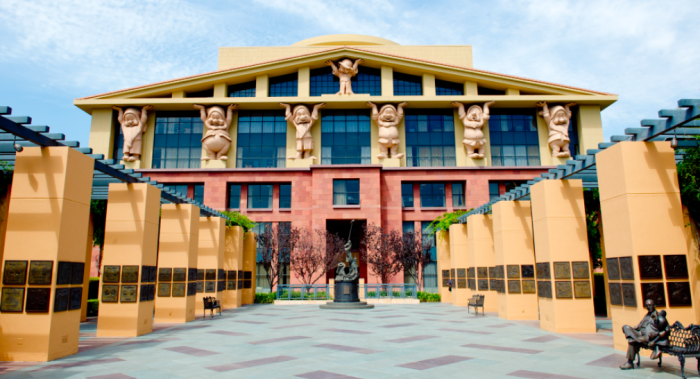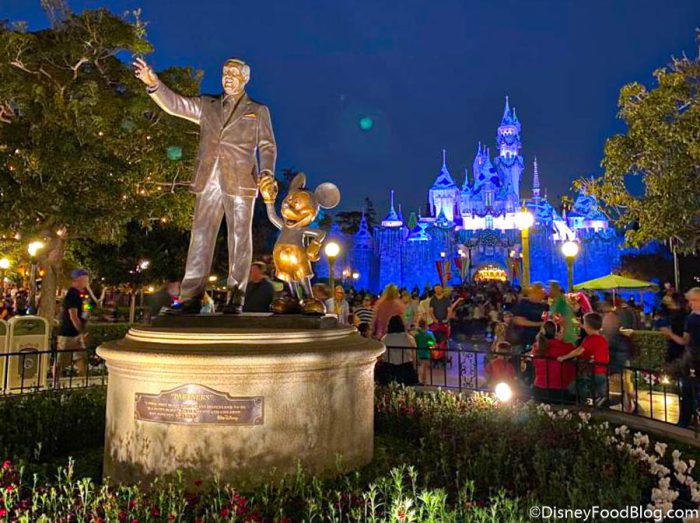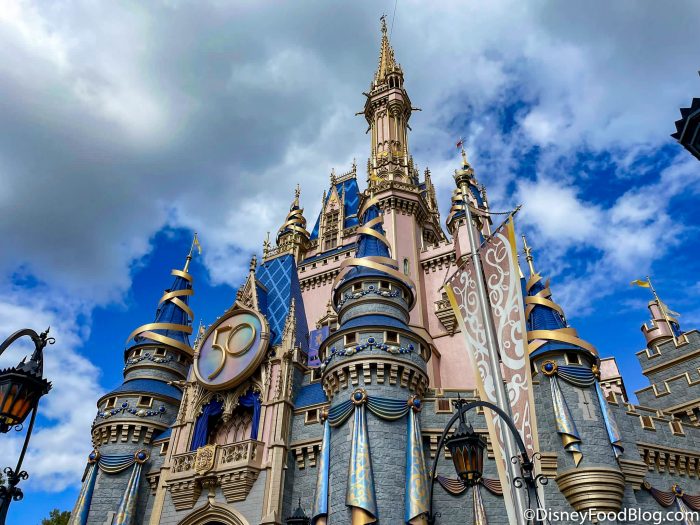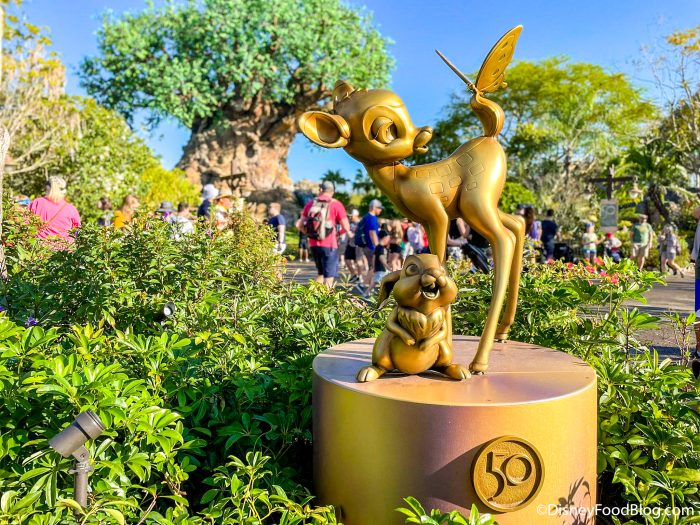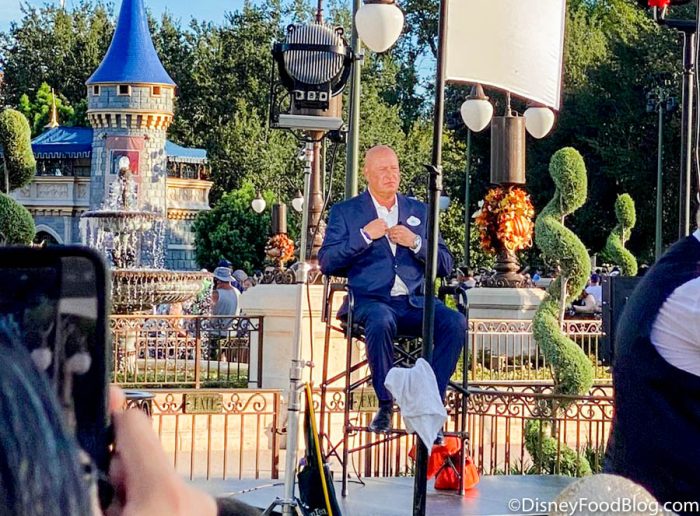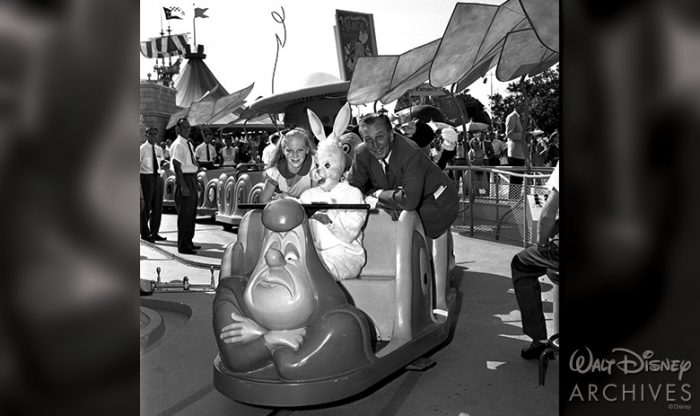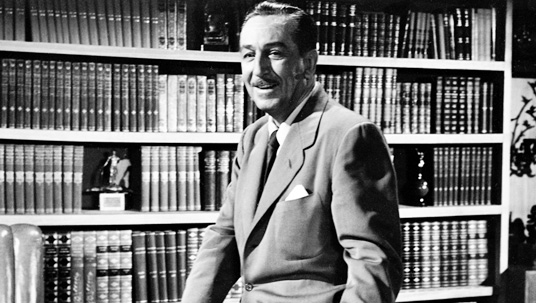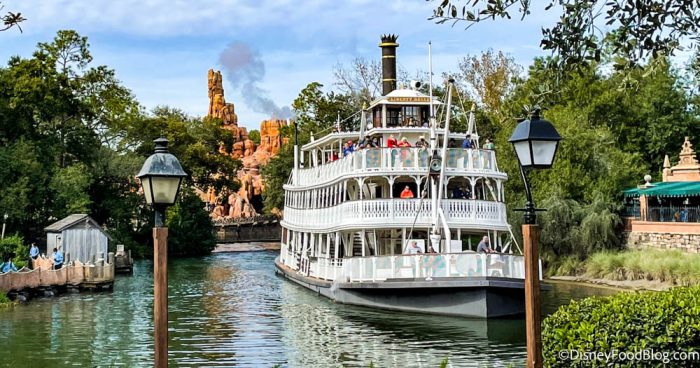Video of a gathering of protesters chanting “Boycott Disney” outside Disney headquarters on April 6 has now been viewed more than 1.1 million times. Thousands more people are sharing posts on social media calling for a boycott. A letter recently published in the Wall Street Journal was signed by grandparents stating they had canceled a trip to Disney World with their grandson, and they are “ashamed to be stockholders.”
The latest movement to boycott Disney comes after the corporation issued a statement saying it would seek to have Florida’s Parental Rights in Education Act, dubbed the “Don’t Say Gay” law by its critics, repealed by the Florida Legislature or struck down by the courts.
But Disney has drawn arrows on both sides of this fight. Before the statement above and others by CEO Bob Chapek, Chapek was criticized by the bill’s opponents for not speaking out about the issue.
Dr. Joel Best, a professor of sociology and criminal justice at the University of Delaware, said criticism of Disney’s stance on this issue is inevitable, given its positive reputation and its place in society.
“People believe that Disney stands for goodness,” Best said. “So whatever ideology you are, if you think there is something bad out there, and you can associate the Disney name with it, that provides you with an interesting claim – ‘Look at this! Even Disney is doing it!’”
This Isn’t Disney’s First ‘Family Values’ Fight
Disney has certainly been the subject of calls for boycotts before, including a boycott that was widespread among Christian conservative groups and lasted for 9 years.
That boycott was started 26 years ago by the American Family Association. The Tupelo, Miss.-based organization – known for its more recent boycotts of Target for its restroom policies and Kellogg’s for its production of a Pride-themed cereal – said it called the boycott because of the company’s decline in the family values intended by Walt Disney.
The following year, messengers at the 1997 Southern Baptist Convention’s annual meeting passed a resolution that urged “every Southern Baptist to take the stewardship of their time, money, and resources so seriously that they refrain from patronizing The Disney Company and any of its related entities.”
Luke Holmes, a Southern Baptist pastor and SBC historian, said in an interview with Disney Food Blog that there were many factors that contributed to the call for the boycott.
“More than anything the Southern Baptist Convention desired to express their continued belief in the inerrancy of Scripture as the word of God and to express their support of the values that the Bible expresses,” Holmes said.
Among the specific examples cited in a separate SBC resolution a year earlier – the hosting of so-called “Gay Days” in Disney Parks, the offering of health benefits to the same-sex partners of employees, and the publication of a book titled “Growing Up Gay: From Left Out to Coming Out” by Disney-owned Hyperion.
The SBC produced a sample letter that members were urged to sign and send to The Walt Disney Company, along with a booklet and video explaining the reasoning behind the boycott and listing Disney and its many subsidiaries. With the SBC’s participation, the boycott picked up steam and was joined by Focus on the Family and other evangelical groups.
While previous AFA boycotts had produced economic impacts – an AFA boycott of 7-Eleven in the 1980s led to 7-Eleven stopping the sale of Playboy and Penthouse magazines in its stores, for example – the association called off its Disney boycott in 2005 without producing a visible impact to the company. The SBC followed suit in ending the boycott at its annual convention that same year.
Holmes said that while we often think of the goal of a boycott in economic terms, that 1990s-era boycott was about taking a stand.
“The goal of the boycott was not necessarily to force economic impact but to express Southern Baptists’ belief in God’s word and that the SBC is not shifting with the times,” Holmes said. “As the times changed, the SBC was signaling that their beliefs about what is right and true has not changed.”
“No one can really speak for the SBC as a whole, but personally I think the boycott did show that the SBC still believed in the Bible and biblical values,” Holmes said. “It did bring awareness to changing practices at Disney and across media and entertainment as a whole also.”
Uniquely Positioned for Criticism
But the criticism of Disney does not come exclusively from what we commonly think of as the political right. Disney has faced criticism from unions regarding unfair labor practices, complaints from various groups about unfair ethnic stereotypes in its movies and its theme parks, and protests from animal rights groups regarding the treatment of animals at its theme parks.
Disney is uniquely positioned to draw these critiques, Best said. “People only do this with Disney,” he said. “Disney is pure and good, yet is contaminated by whatever is going on.”
According to Best, Disney built its glowing reputation for family friendliness starting in the 1950s, during a great baby boom and the widespread adoption of television. Disney transformed itself from a company making animated movies – which took years to produce at great cost – to one making live-action and documentary television shows, toys, books, and a theme park.
“I grew up in this period, and we were absolutely surrounded by Disney,” Best said.
Walt Disney himself came into homes each week, providing families with tours of Disneyland, animated features, and live-action shows.
“Disney’s brand was clear,” Best said. “You could take your family to a Disney movie or watch a Disney TV show, and they wouldn’t see anything inappropriate.” Best points to Disney+ as a way that Disney has now “solidified its lock on a family-friendly reputation.”
Changing Family Values?
Dr. Susan MacManus, a Florida-based political analyst and distinguished professor emerita of political science at the University of South Florida, points out economic forces at work in Disney’s position on the new Florida law.
Widely known labor market woes – namely a shortage of younger people to fill theme park jobs – are at play, she said.

© Disney | Disney has been holding job fairs and advertising its employee perks to attract more workers
“They are heavily reliant on attracting young workers, and for young workers the LBGTQ+ issues are more relevant,” MacManus said in an interview with Disney Food Blog. “The generational divide on that issue is deep.”
Disney has long portrayed itself as a defender of family values in Florida in an effort to keep gambling away from Walt Disney World. The company spent more than $15 million in 2018 to support a Constitutional amendment that handed control of where new casinos could be located to voters.
But in its 4th quarter 2021 earnings call, Walt Disney Company CEO Bob Chapek said Disney is “aggressively” pursuing opportunities in the gambling industry, namely sports betting.
MacManus said this contradiction between portraying itself as a beacon of family values and then taking a stand on social issues that don’t align with some of the population’s ideals on family values leaves Disney open to questions like those being asked today.
“I think that’s what has grabbed some people,” she said.

©Disney Cruise Line | DCL remains the only major cruise line that doesn’t have casinos on any of its ships.
The fact that Disney drew sharp criticism from people on both sides of the controversy over the new Florida law just illustrates an evergreen problem for Disney, Best said. “Both sides think they are on the side of goodness. Both of them are p***** off, because Disney is not falling in line with their definition of good.”
Renewed Calls for a Disney Boycott
California-based Christian worship leader Sean Feucht’s Hold the Line movement is behind a series of protests that have been held outside of the Disneyland entrance. In an April 12 tweet, Feucht said the petition he has launched has been signed by more than 50,000 people.
Parent have not even begun to fight!!
Tonight at Disneyland felt historic!!!
A movement is underway! #HoldTheLine pic.twitter.com/2uOEewcskE
— Sean Feucht (@seanfeucht) April 14, 2022
The American Family Association that started the 1990s boycott is once again calling for a Disney boycott, as well, this time of the Pixar movie, “Lightyear,” set to be released on June 17.
As for the Southern Baptist Convention, this year’s annual meeting is being held at the Anaheim Convention Center in June. One of the special offers for the messengers attending the convention is a discount on Disneyland tickets, according to The Tennessean.
How many SBC messengers visit Disneyland, and how many families cancel Disney trips or movie plans or Disney+ subscriptions remains to be seen.
But, if history is any indication, Disney may just go about its business, boycott or not.
“I think that the Disney corporation figured out a long time ago that it’s going to take a certain amount of flack, and you just keep sailing,” Best said.
Join the DFB Newsletter to get all the breaking news right in your inbox! Click here to Subscribe!
What do you think about the latest calls for a boycott of Disney? Let us know in the comments.
The post Boycotting Disney Isn’t New. But Does It Work? first appeared on the disney food blog.


